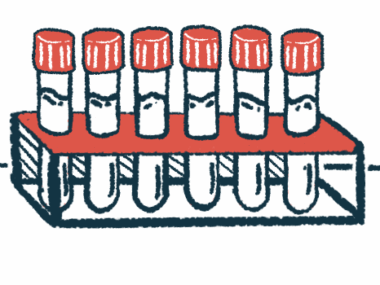Independence Means Proactive Living
Written by |

Over the years, I’ve talked with many SMA individuals and people with other disabilities who crave more independence in their lives. Beyond the physical limitations that come with having a disability, the biggest frustrations have to do with finding resources to become more independent. Society doesn’t exactly make it easy for us to live on our own and acquire proper care, and for many, the concept of living independently is too much of a logistical nightmare to even consider.
I get it. I’m 24, and I still live at home with my parents. When I think about the fact that my siblings, friends, and people I went to school with are either on their own or married, I imagine how cool it would be to live in an apartment of my own and have caregivers stay with me. At the same time, I know it would require me to work through countless loopholes and figure out how I could afford it all. Even with a full-time job that pays well, I’d have to cover not only my living expenses but also pay the caregivers for additional hours that aren’t covered by the government.
Moving out of my parents’ house is still one of my long-term goals, but right now, I’m focused on my career and hiring more caregivers at home. Randy is great, but he can’t work with me 24/7, and I need more assistance during the day and on weekends to reduce the workload for my parents.
Nevertheless, while I still live at home, I also enjoy a significant amount of independence in my daily life. I have a great full-time job and am building my career as a comics writer. I have an awesome caregiver who works with me throughout the week, plus I have an active social life and friends who give me rides when we’re hanging out. And I can’t remember the last time I asked my parents for money.
Still, none of these things simply fell into my lap. Whether it was acquiring my job at Bionews Services or getting proper care, I had to be proactive. After graduating college in fall 2016, I applied for part-time jobs, networked on LinkedIn and Twitter, and sent out writing samples to websites and magazines before eventually coming across SMA News Today. When I’m looking for a new caregiver, I’m the one who calls agencies and schedules interviews. I do the hiring, not my parents.
In college, I really had to be proactive and make sure that I had the care I needed while I was on campus. Whether it was getting from class to class, getting to the student media offices where I worked, or just making sure I had someone to eat lunch with to help me with my food, it was up to me to make sure that my needs were met and to ask for help when I needed it. I wrote about my college experiences in the Muscular Dystrophy Association’s Quest Magazine last year with the hope that it might encourage other SMA individuals to pursue college in spite of their physical limitations.
Attaining even the smallest amounts of independence is no easy task when you have SMA. Whether it’s going to school, finding a job, or acquiring the help you need to live independently, the obstacles can seem overwhelming. Yet, as an SMA individual who depends on my parents way less than I did just a few years ago, I can tell you that it all comes down to proactive living. Set goals for yourself, figure out a plan to achieve them, and then take the first step toward an independent lifestyle.
For more advice on this subject, connect with me on Twitter (@kwschaef) and reach out to me on the SMA News Today forum.
***
Note: SMA News Today is strictly a news and information website about the disease. It does not provide medical advice, diagnosis, or treatment. This content is not intended to be a substitute for professional medical advice, diagnosis, or treatment. Always seek the advice of your physician or other qualified health provider with any questions you may have regarding a medical condition. Never disregard professional medical advice or delay in seeking it because of something you have read on this website. The opinions expressed in this column are not those of SMA News Today, or its parent company, Bionews Services, and are intended to spark discussion about issues pertaining to spinal muscular atrophy.








Leave a comment
Fill in the required fields to post. Your email address will not be published.